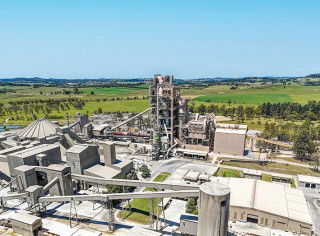The World Cement Association's (WCA) annual conference on 20-21 October 2021 called for 'a decade of action' from the cement industry starting now to keep to the targets set by the 2015 Paris Agreement of limiting global warming ideally to 1.5˚C and no more than 2˚C this century.
Keynote speaker, Lord Adair Turner, chair of the Energy Transitions Commission, explained that: "For the hard to abate sectors of steel, cement and chemicals we have visions of how to get to net zero by 2050. …But in the cement sector there will be additional costs and it will take time. Even when we can describe the technologies needed, it will take time to get going. But it’s crucial to get going."
WCA president and chairman of CNBM, Song Zhiping, said: "If the world produces 4bnt of cement, 2.4bnt of CO2 will be emitted per year, which accounts for seven per cent of the global total. This doesn't include the emission from raw materials and product transportation. As a hard-to-abate industry, the cement industry might face its biggest challenge of achieving net zero target.
"The carbon neutrality mission will bring about a tremendous revolution for many industries including the cement industry. Both challenges and opportunities are to arise during the course. It will effectively promote the low-carbon green transition and upgrade the industry. More endeavours are needed to boost sustainable development of the industry and draw more cement companies to take actions to tackle the climate change challenge in a voluntary and practical manner," Mr Zhiping concluded.
Mahendra Singhi, managing director and CEO of Dalmia Cement (Bharat) Ltd, added: "The cement sector is possible to abate." He admitted the industry can move faster, but the developed world needs the green finance and support may be from the oil and gas industries to experiment on carbon capture and utilisation.
Meanwhile, the WCA is making its own Roadmap tool for carbon reduction, called DECASS (the WCA Decarbonsation Assistant), to see how to bridge the gap analysis of the present situation compared to where the world needs to be in terms of CO2 reduction to meet 2030 objectives. Going forward, the WCA intends to develop a tool to help each individual cement plant choose the best pathway to carbon reduction. It has set about this by breaking down the traditional four levers, highlighted in the International Energy Association (IEA) 2018 report (energy efficiency, fuel switching, clinker substitution, introduction of innovative technologies) to lower CO2 emissions in the cement sector. The tool will evaluate which pathway is best for individual cement plants to reach decarbonisation targets.
